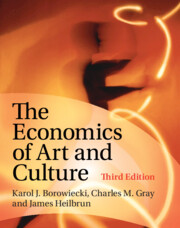14291 results in Political economy
Glossary
-
- Book:
- Decolonizing Development
- Published by:
- Bristol University Press
- Published online:
- 03 April 2024
- Print publication:
- 30 November 2023, pp viii-xii
-
- Chapter
- Export citation
Glossary
-
- Book:
- How a Ledger Became a Central Bank
- Published online:
- 16 November 2023
- Print publication:
- 30 November 2023, pp 271-278
-
- Chapter
- Export citation
8 - Prussia’s Debasement during the Seven Years War: the Role of the Bank
-
- Book:
- How a Ledger Became a Central Bank
- Published online:
- 16 November 2023
- Print publication:
- 30 November 2023, pp 205-242
-
- Chapter
- Export citation
Frontmatter
-
- Book:
- Decolonizing Development
- Published by:
- Bristol University Press
- Published online:
- 03 April 2024
- Print publication:
- 30 November 2023, pp i-ii
-
- Chapter
- Export citation
4 - Indigenous African Knowledge: Ubuntu Philosophy
-
- Book:
- Decolonizing Development
- Published by:
- Bristol University Press
- Published online:
- 03 April 2024
- Print publication:
- 30 November 2023, pp 66-85
-
- Chapter
- Export citation
1 - Similar yet Different?
-
- Book:
- How a Ledger Became a Central Bank
- Published online:
- 16 November 2023
- Print publication:
- 30 November 2023, pp 1-16
-
- Chapter
- Export citation
List of Figures
-
- Book:
- Decolonizing Development
- Published by:
- Bristol University Press
- Published online:
- 03 April 2024
- Print publication:
- 30 November 2023, pp vi-vi
-
- Chapter
- Export citation
5 - Organic Farming and Slow Food in Post-Soviet Latvia
-
- Book:
- Decolonizing Development
- Published by:
- Bristol University Press
- Published online:
- 03 April 2024
- Print publication:
- 30 November 2023, pp 86-107
-
- Chapter
- Export citation
7 - Decolonizing Development
-
- Book:
- Decolonizing Development
- Published by:
- Bristol University Press
- Published online:
- 03 April 2024
- Print publication:
- 30 November 2023, pp 132-155
-
- Chapter
- Export citation
3 - Indigenous Baltic Knowledge: Daina Philosophy
-
- Book:
- Decolonizing Development
- Published by:
- Bristol University Press
- Published online:
- 03 April 2024
- Print publication:
- 30 November 2023, pp 45-65
-
- Chapter
- Export citation
Disclaimer
-
- Book:
- How a Ledger Became a Central Bank
- Published online:
- 16 November 2023
- Print publication:
- 30 November 2023, pp xxv-xxvi
-
- Chapter
- Export citation
6 - Metal in Motion: The Mechanics of Receipts
-
- Book:
- How a Ledger Became a Central Bank
- Published online:
- 16 November 2023
- Print publication:
- 30 November 2023, pp 145-173
-
- Chapter
- Export citation
9 - The Bank’s Place in Central Bank History
-
- Book:
- How a Ledger Became a Central Bank
- Published online:
- 16 November 2023
- Print publication:
- 30 November 2023, pp 243-270
-
- Chapter
- Export citation
Preface
-
- Book:
- Decolonizing Development
- Published by:
- Bristol University Press
- Published online:
- 03 April 2024
- Print publication:
- 30 November 2023, pp xix-xx
-
- Chapter
- Export citation

The Economics of Art and Culture
-
- Published online:
- 24 November 2023
- Print publication:
- 28 September 2023
-
- Textbook
- Export citation
The Institutional Diagnostic Project Presentation
-
-
- Book:
- State Capture and Rent-Seeking in Benin
- Published online:
- 09 November 2023
- Print publication:
- 23 November 2023, pp 2-12
-
- Chapter
-
- You have access
- Open access
- HTML
- Export citation
Notes on Contributors
-
- Book:
- State Capture and Rent-Seeking in Benin
- Published online:
- 09 November 2023
- Print publication:
- 23 November 2023, pp xvii-xx
-
- Chapter
-
- You have access
- Open access
- HTML
- Export citation
Discussion of ‘The Cotton Sector: History of a Capture’
- from Part II - A Deeper Investigation of Some Key Sectors and Institutions
-
-
- Book:
- State Capture and Rent-Seeking in Benin
- Published online:
- 09 November 2023
- Print publication:
- 23 November 2023, pp 207-211
-
- Chapter
-
- You have access
- Open access
- HTML
- Export citation
Part I - An Overview of Economic and Institutional Constraints on Benin’s Development
-
- Book:
- State Capture and Rent-Seeking in Benin
- Published online:
- 09 November 2023
- Print publication:
- 23 November 2023, pp 13-126
-
- Chapter
-
- You have access
- Open access
- HTML
- Export citation
References
-
- Book:
- State and Business in Tanzania's Development
- Published online:
- 09 November 2023
- Print publication:
- 23 November 2023, pp 371-396
-
- Chapter
-
- You have access
- Open access
- HTML
- Export citation

